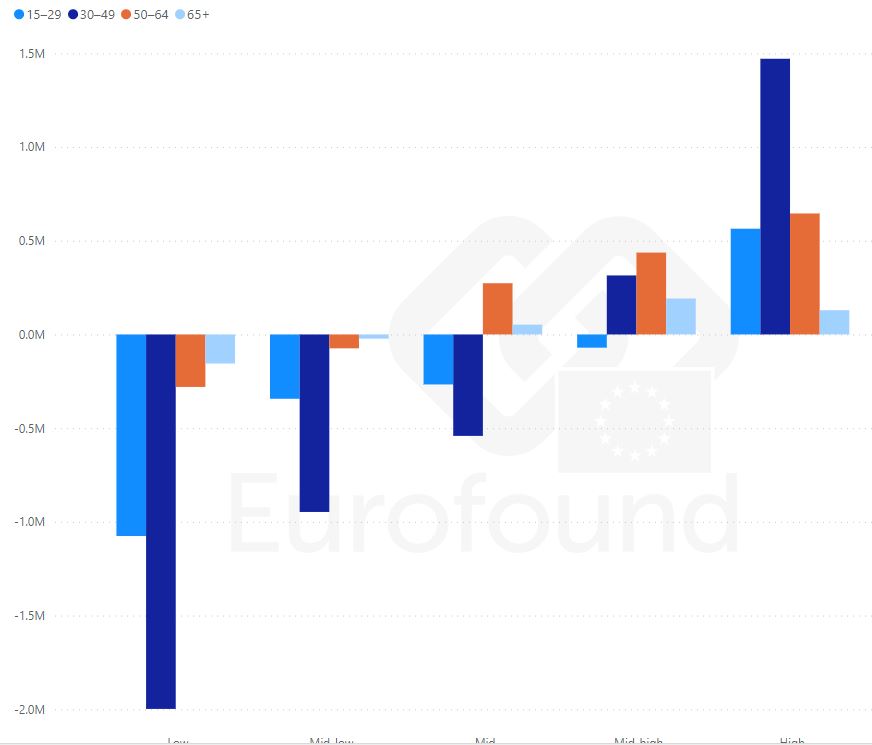
Employment structure
The employment structure reflects the change in employment across occupations and sectors, using various proxies of job quality. The current debate about shifts in the employment structure is focused on the extent to which observed patterns of job polarisation and upgrading have contributed to wage inequality trends and on Europe's shrinking middle class.










